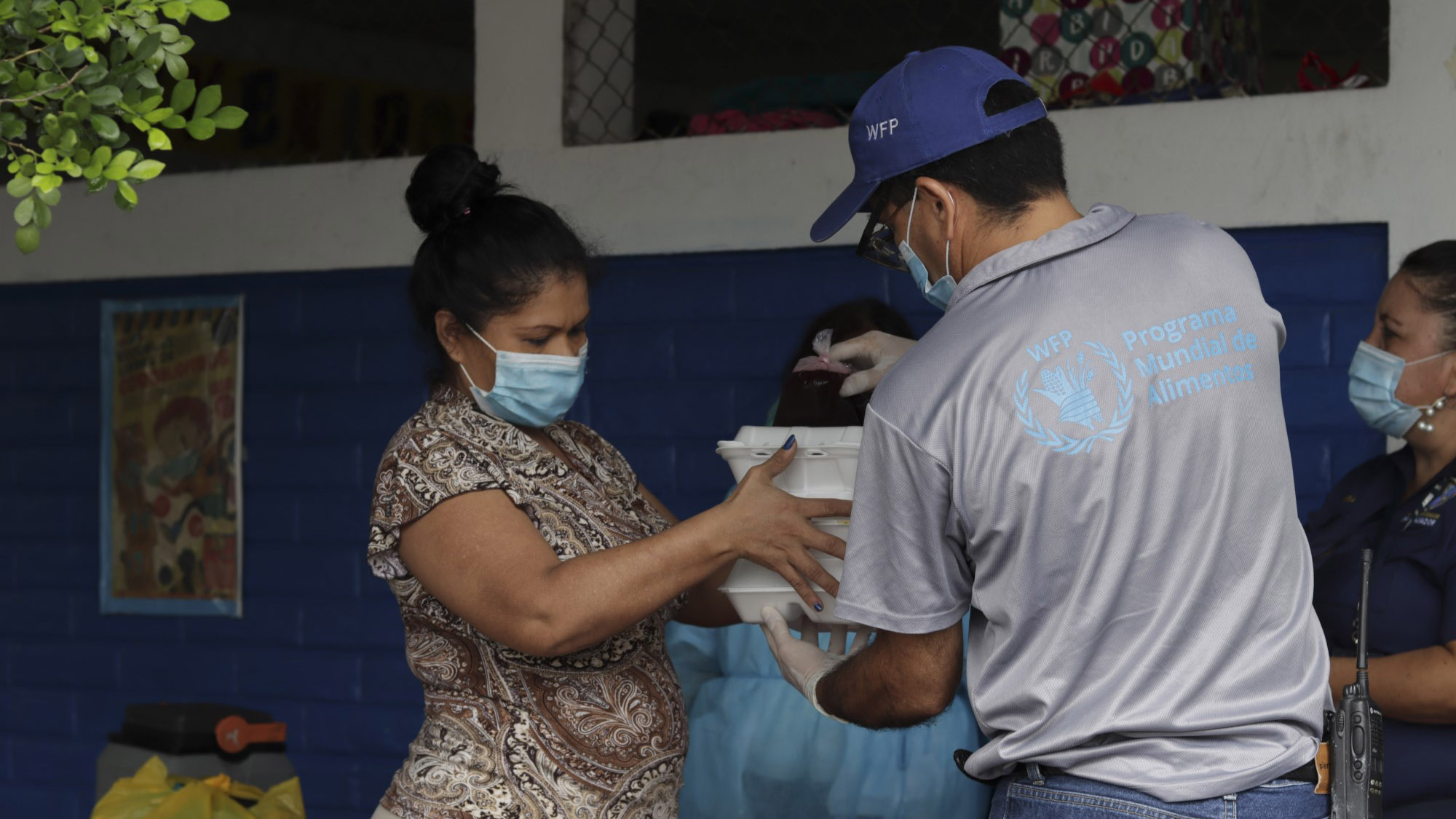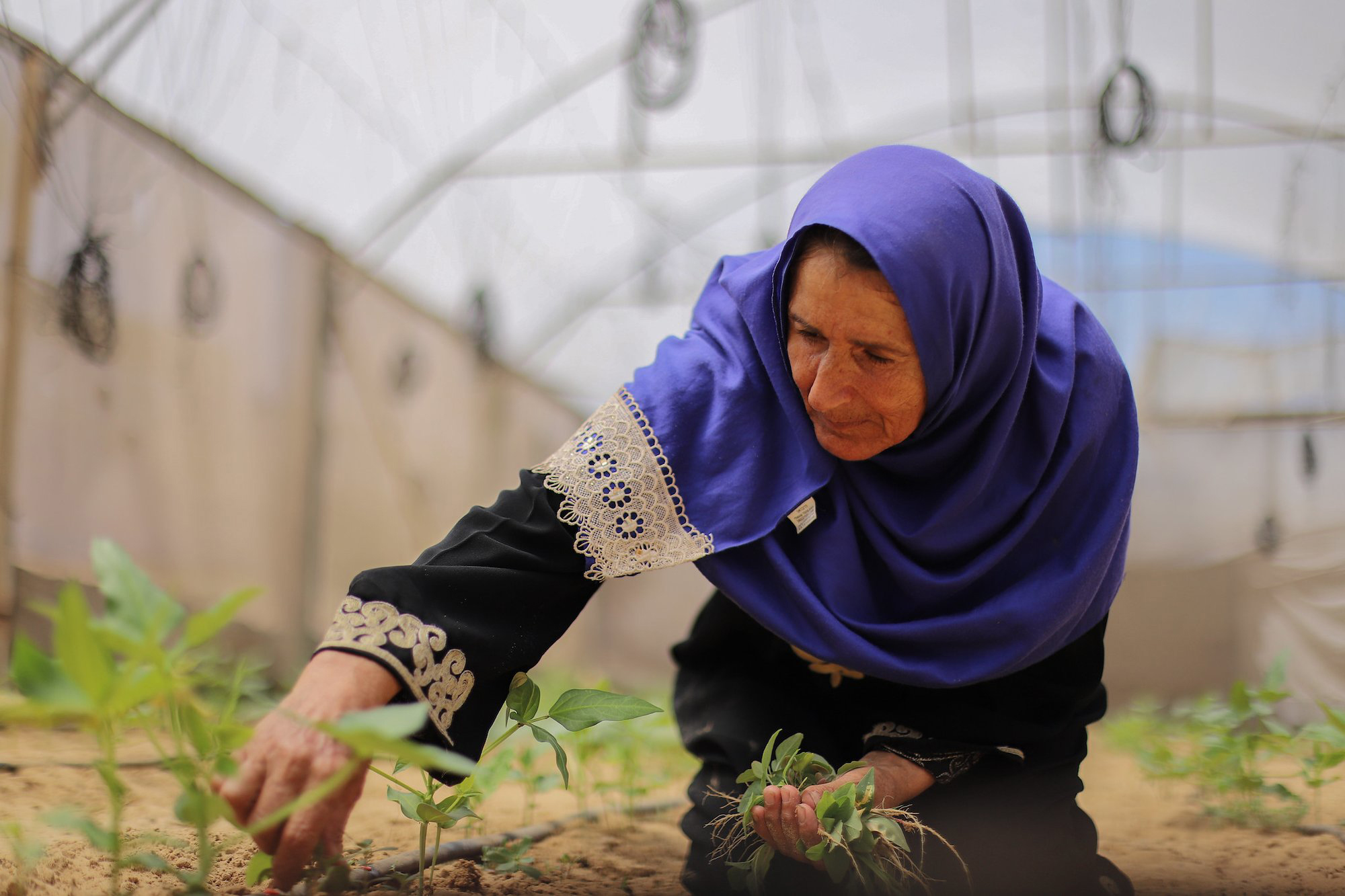Find out more in
Inside the Hagadera Refugee Camp in Dadaab, Kenya, Mariam has cultivated a thriving kitchen garden over the past 19 years, following her arrival from Somalia due to political unrest. Supported by the EU-funded Refugee Settlement Project and the Food and Agriculture Organization of the United Nations (FAO), her garden produces nutritious crops like spinach, kale, and jute mallow, surpassing others in quantity and quality. Fellow community members frequently visit to admire her garden and learn from her. The project aims to expand support to another 2,000 households, promoting vegetable gardening and backyard chicken rearing to improve nutrition and dietary diversity for families in the camp.
Healthy food in schools is crucial for children’s lifelong dietary habits. According to the World Health Organization (WHO) new guidelines, and with childhood obesity rising and undernutrition persisting, schools play a key role in addressing this double burden. In 2025, 188 million school-aged children were living with obesity. WHO recommends setting standards to promote healthy foods while limiting unhealthy options and implementing nudging interventions to encourage better choices. Effective policies and enforcement are essential, yet only 48 countries have restrictions on marketing unhealthy foods. Prioritizing nutrition in schools is vital for future health and well-being.
In Kyrgyzstan’s rugged Batken Province, 70-year-old farmer Urinisa Tillabaeva is proving that tough land can still grow bright futures. With a new greenhouse, drip irrigation, and hands-on training, she no longer waits out the long winter months—she harvests beyond the traditional season, boosting yields and turning tomatoes into steady income for her family. As a leader in a local women’s farming group, Urinisa Tillabaevais helping her community trade uncertainty for resilience—growing more and wasting less. She is among 4,500 farmers participating in a new World Food Programme (WFP) project aimed at boosting incomes and diets and adapting to deepening weather extremes in one of Central Asia’s most climate-vulnerable countries.
In eastern Cameroon, the Baka people have traditionally relied on hunting and gathering, but recent climate shocks, economic instability, and conflicts have strained their resources. In Mayos, a village in Dimako district, many have faced food scarcity, forcing children to miss school to search for food. To address this crisis, from April 2024 to June 2025, the Food and Agriculture Organization (FAO), with the Cameroonian government and World Bank support, launched the Emergency Project to Combat the Food Crisis (PULCCA). This initiative provided training in modern agricultural techniques and distributed production kits, blending traditional knowledge with new practices to enhance food security for the Baka community.
Communities in Tajikistan are reviving ancestral seeds and protecting agrobiodiversity, with FAO support helping farmers and women’s groups restore traditional crops, boost livelihoods, and strengthen resilience.
In southern Brazil, a drink symbolizes connection; the cuia, a traditional vessel for chimarrão (erva-mate), fosters conversation and community. This drink carries not just warmth but also cultural memory and environmental wisdom. In Parana State, erva-mate is sustainably cultivated within native forests, supporting local livelihoods over generations. This approach allows agriculture to coexist with the forest rather than clear it. Brazil, alongside Argentina and Paraguay, stands as a major global producer and exporter of erva-mate, linking cultural heritage with international markets.
How much do you know about food loss and waste? Let’s find out! These brainteasers, quizzes, and crosswords will put your knowledge to the test.
This video features submissions to the “Global Call for Stories: Family farmers at the heart of climate-resilient and sustainable agrifood systems,” organized by FAO’s Family Farming Knowledge Platform and Engagement Units, in collaboration with allies including Access Agriculture, Access Agriculture, Agricultural Extension in South Asia (AESA), Alliance for Food Sovereignty in Africa (AFSA), Asian Farmers' Association for Sustainable Rural Development (AFA), CIRAD, EncontrAR, Latin American Council of Social Sciences (CLACSO), Platform of Latin America and the Caribbean for Climate Action on Agriculture (PLACA), Schola Campesina, and the World Rural Forum.
Land, soil, and water are essential for agriculture and food security, but they face severe pressure due to human activities. Over 60% of human-induced land degradation occurs on agricultural lands, while agriculture utilizes over 70% of global freshwater withdrawal. The new edition of The State of the World’s Land and Water Resources highlights the urgent issues of land degradation, water scarcity, and climate change, and their effects on agricultural productivity and ecosystems. It explores sustainable solutions and integrated approaches for sustainable land, soil and water use and management emphasizing the importance of our current choices to ensure resource protection and meet future demands.
For the Seychelles, a small island developing state in the middle of the ocean, land is limited, and 200 years of human settlement has already seen significant impacts on both terrestrial and marine ecosystems. On the main island of Mahé, where 86% of the population live, land is being actively developed for tourism, agriculture, housing, and other human needs. The impacts of these demands can be seen and felt where today less than 5% of the original native forest remains intact. To reverse this damage and restore degraded land, the project ‘Ridge to Reef’, is working to improve tree cover and restore soil. Funded by the Global Environment Facility (GEF) and implemented by the Seychelles Government in partnership with UNDP, the 'Ridge to Reef' approach focuses on the connection between land and sea to address environmental degradation. Nelson Renaud, chairman of the Local Food Producers Association, says "By taking care of the land, we can grow food that will take care of our community."
In Peru, the Awajun community, supported by the Avanzar Rural project, adapts cacao farming to climate change, improving yields, incomes, and market access for smallholders.
Adaptation can seem daunting for rural businesses, but it’s a win-win. By adopting sustainable farming techniques like agroforestry, small-scale farmers can drive economic growth while protecting their land.
In the third episode in IFAD's “Life stories” mini-series, we head to the Peruvian Amazon to see adaptation in action. Join us as IFAD Recipes for Change chef Waldir Maqque meets with Ruth, whose farmers’ association has become a key player in the local cacao value chain with IFAD’s support.
As dawn breaks over the Ororubá Mountains in Pernambuco, Brazil, Indigenous youth from the Xukuru do Ororubá people work in a nursery, reviving native plant species, especially those with medicinal value. Led by Ângela Neves Pereira (“Bella”), they aim to restore not just the land but their cosmogony, identity, culture and balance. Since 2023, the Xukuru people and the Food and Agriculture Organization (FAO) have collaborated on Indigenous Peoples' biocentric restoration, a method that prioritizes the well-being of all living things within an ecosystem. Supported by Brazil’s government and FAO’s AIM4Forests programme, this initiative enhances Indigenous knowledge and aims to restore at least 30% of degraded ecosystems by 2030.
A small-scale farming initiative, launched in May 2025 by FAO and funded through the OPT Humanitarian Fund, has provided urgently needed cash assistance to farmers in Gaza to restart vegetable production. One beneficiary, 60-year-old Susan Allaham, returned to cultivation on her land in Khan Younis after the war halted her farming for years. Respite extreme challenges — lack of inputs (fertilizer, seeds, pesticides), damaged land, high prices, and a broader food-security collapse after two years of conflict — about 200 farmers are now growing vegetables again, offering a small “seed of hope.” Vegetables are seen as vital sources of vitamins and nourishment, especially for children and pregnant women. However, as of mid-October 2025, only about 4 % of Gaza’s agricultural land remained accessible and intact, underscoring how limited this recovery is. For farmers like Susan, this cultivation is their only means of livelihood, and if conditions — including the ceasefire — hold, they plan to expand production farther, reclaiming their land and supporting their families.












